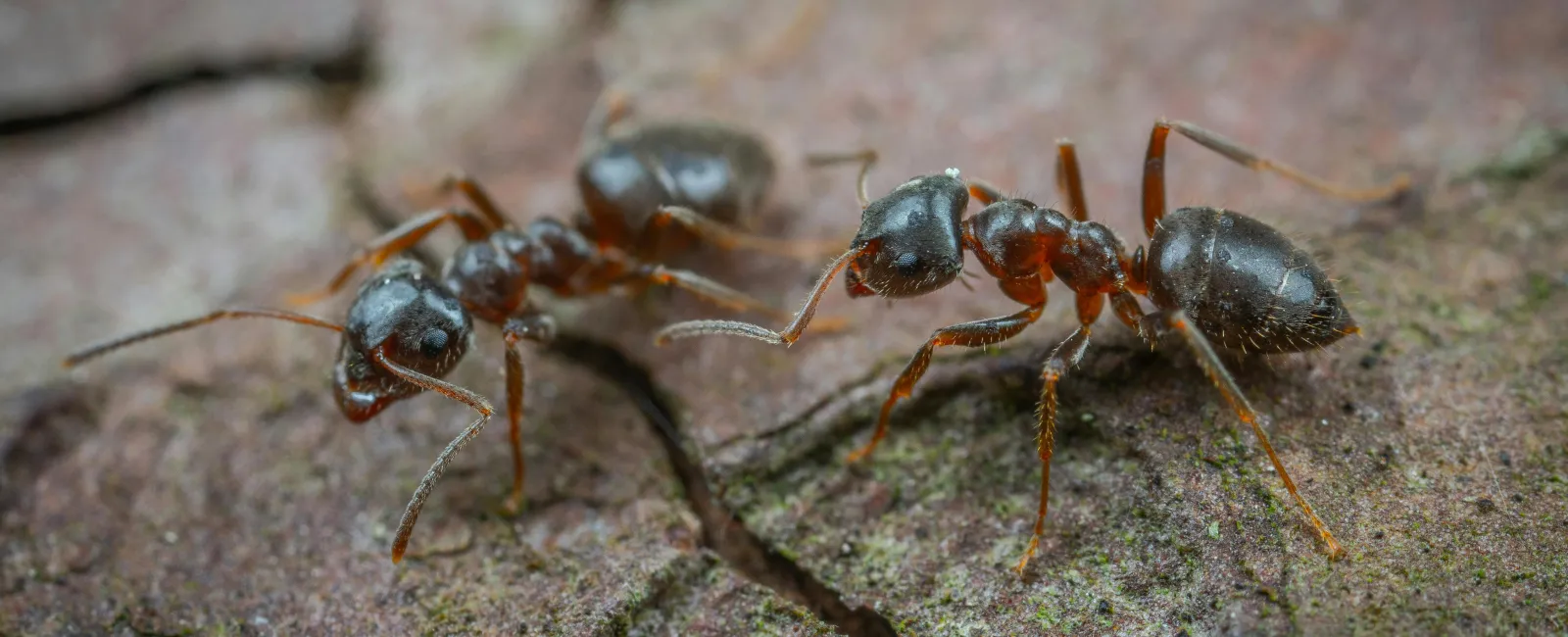Dealing with an ant infestation every summer is a headache. These pesky insects are small enough to find their way through any cracks and gaps in search of a food source. Summer ants might be frustrating, but you don't have to live with them! Here are our best tips and tricks on ways to get rid of ants and prevent future infestations:
Understanding Your Ant Infestation
From carpenter ants to flying ants, there are plenty to go around! More ants start to pop up as the summer sets in because they finally have the warmth and energy they need to stray from their colony. Ants invade homes for the sole purpose of finding food and water, but an escape from the hot weather is an added bonus. To truly understand ant invasions, you have to understand their motives. As members of a colony, ants are constantly looking to find food and bring it back home.
While other pests stick around and hide out of sight so they can keep stealing your food, ants don't worry about hiding from view. Summertime ants simply grab what they can and walk out the same way they came in. While the benefit is that you'll know right away if you're dealing with ants, the downside is they keep coming back no matter how many times you try to spray them with store-bought chemicals.
What Causes Ant Infestations
If you have an ant hill on your property, chances are, you will come across an ant invasion in your kitchen. Ant infestations usually result from having an ant hill nearby and an easily accessible food source. Dog food, honey, crumbs, and other food sources attract ants because of their keen sense of smell. Additionally, leaky pipes and other water sources can lead ants to seek refuge in your home.
Where Do Ants Come From?
Ants are social insects that live in large colonies with different castes, including the queen ant who lays eggs. In spring and summer, the queen ant lays eggs prolifically, causing a population explosion and some ants to leave their nest to forage for food outside. Ants are drawn to sugary foods and can contaminate food with their feces as they search for crumbs or morsels. Ants can get into homes through tiny cracks and will leave a pheromone trail for other ants to follow, resulting in an infestation.
Common Ant Species Found in Homes
When you discover that you can't keep up with ants in summer, it's time to get educated! Knowing the different types of ants you might encounter can help you get prepared for preventing ants. The most common types of house-inhabiting ants include:
Carpenter Ants
Tetramorium immigrans (aka Pavement Ants)
Little Black Ants (Yes, they are actually called that!)
Odorous Ants
Pharoah Ants
Fire Ants
Ghost Ants
Carpenter ants excavate wood to build their nests, causing structural damage to homes. Odorous house ants have a strong, rotten, coconut-like scent when crushed and are determined pests that will use branches or plants to climb inside homes and nest near moisture sources and damaged wood. Little black ants are scavengers that feed on sugary or fatty foods and have stingers, but they are too small and weak to pose any health threat. Pavement ants make nests in or under pavement cracks and will eat a variety of foods.
These different ant species can all be identified by their unique looks and behaviors. If you are unsure or unable to identify them, it might be helpful to contact a professional pest control company to find out what you are dealing with.
Preventing Ant Infestations
Tips to Keep Ants Out
Keeping ants away isn't as hard as you might think. With the right approach, you can treat the handful of ants you see before you've got an infestation on your hands. Begin by:
Spending time finding and sealing all possible entry points, using caulk and other sealing agents.
Keeping your home clean and tidy to prevent ants from being attracted to food and water.
Sealing entry points and remove standing water to prevent ants from entering your home.
Keeping pet food sealed and stored in a secure location to prevent ants from being attracted to it.
Getting Rid of Ants Naturally
Natural methods can be used to repel ants when you are dealing with small numbers. There are certain essential oils and even diluted vinegar in a spray bottle can help repel ants. Another way to prevent ants and eliminate them is to clean and wipe down surfaces regularly to remove pheromone trails and discourage ants from following them. Understand how ants behave and use this knowledge to track and eliminate ant trails rather than just treat symptoms!
If that doesn't work, it's time to reach out to the experts. Ant control can be tricky, and because they're so persistent, your best shot at an ant-free summer is to let the professionals take care of the job!

